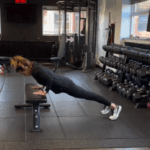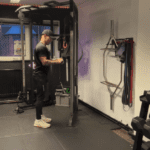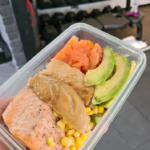When it comes to fitness and alcohol consumption, moderation is key. While alcohol can impact your fitness goals, there are ways to minimise its effects and make smarter choices if you choose to drink. Here’s what you need to know:
Best alcoholic drinks for fitness
When selecting alcoholic beverages that are less likely to derail your fitness progress, consider the following options:
- Vodka Soda: A vodka soda with a squeeze of lime is one of the lowest-calorie alcoholic drinks. Vodka contains about 97 calories per 1.5-ounce shot, and soda water adds no additional calories.
- Light Beer: Light beers typically contain fewer calories and carbs compared to regular beers. An average 12-ounce bottle of light beer contains about 153 calories.
- Wine: A 5-ounce glass of wine contains approximately 123 calories. Red wine, in particular, contains antioxidants that may offer some health benefits when consumed in moderation.
- Tequila with Lime: Similar to vodka, tequila is a lower-calorie spirit option. A shot of tequila contains about 105 calories.
- Whiskey Neat: If you enjoy whiskey, drinking it neat (without mixers) keeps the calorie count low at around 105 calories per shot.
Impact on Weight Gain
The relationship between alcohol consumption and weight gain is complex. Alcohol itself contains 7 calories per gram, which is almost as much as fat (9 calories per gram). However, the impact on weight gain depends on various factors, including:
- Total calorie intake
- Frequency of consumption
- Individual metabolism
- Overall diet and exercise habits
While there’s no exact formula for how much alcohol leads to one pound of weight gain, it’s important to remember that alcohol can contribute to weight gain in several ways:
- Empty calories: Alcohol provides calories without nutritional value.
- Increased appetite: Alcohol can stimulate appetite and lead to overeating.
- Impaired judgment: Drinking may lead to poor food choices.
- Metabolic effects: The body prioritizes metabolizing alcohol over burning fat.
Drinking in moderation
Moderate drinking is defined as up to one drink per day for women and up to two drinks per day for men. A standard drink is:
- 12 ounces of regular beer
- 5 ounces of wine
- 1.5 ounces of distilled spirits
When incorporating alcohol into a fitness-focused lifestyle, consider these tips:
- Set limits: Decide on a drink limit before going out.
- Stay hydrated: Alternate alcoholic drinks with water.
- Choose wisely: Opt for lower-calorie drinks and avoid sugary mixers.
- Plan ahead: Adjust your calorie intake on days you plan to drink.
- Don’t skip meals: Eating before drinking can help slow alcohol absorption.
Personal Training Considerations
If you’re working with a Personal Trainer or following a specific fitness program, it is essential to be honest about your alcohol consumption. Your trainer can help you:
- Adjust your nutrition plan to accommodate occasional drinks.
- Schedule workouts to minimise the impact of drinking on your performance.
- Develop strategies to balance social drinking with your fitness goals.
- Understand how alcohol affects recovery and muscle growth.
Remember, while it is possible to include moderate alcohol consumption in a healthy lifestyle, prioritising your fitness goals may require limiting or avoiding alcohol, especially during intense training periods or when trying to achieve specific body composition targets.
A Personal Trainer is an investment in your health and well-being that can lead to long-term positive effects on your fitness, confidence, and overall health. PT Hale prides itself on being a social and safe space where you can work out individually, or with like-minded people to get the results that you want and deserve – LET’S GO!











